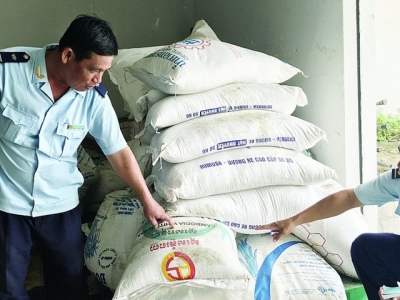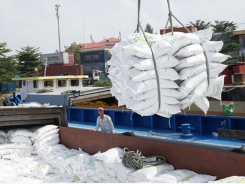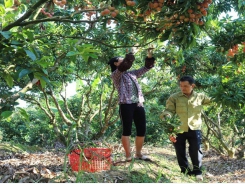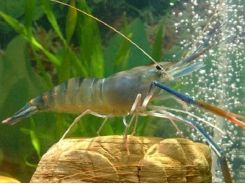Sugar industry is concerned about unfair competition

Farmers have stopped producing sugarcane, causing many factories to close due to lack of raw materials, which is the current situation of the sugar industry when Vietnam opens its import market according to integration commitments.
Domestic sugar is surrounded by cheap imported sugar and smuggled, causing many businesses to close and stop working. In the photo: Smuggled sugar seized by Customs. Photo: L.T
Enterprises must stop operating due to lack of raw materials
Mr. Nguyen Van Loc, acting secretary general of the Vietnam Sugarcane and Sugar Association (VSSA), said the sugarcane area has been halved from 300,000 hectares to nearly 160,000 hectares. Many areas of original sugarcane in the crop year 2019/2020 were abandoned by farmers, not cared for and harvested due to concerns that the revenue could not cover expenses because the price of sugarcane in the previous crop was too low. This caused the output of sugarcane put into processing in the 2019/2020 crop to total just over 7.6 million tons, two million tons lower than planned and the lowest level since 1999/2000.
With low sugarcane production, out of 41 sugar factories, up to 12 factories have closed and stopped working.
"Except for enterprises operating in multiple industries, the other sugar companies must stop working,” Mr. Loc said.
Accordingly, in the crop 2019/2020, the amount of sugar produced is 913,397 tons, down 405,979 tons, equivalent to nearly 35% compared to the previous crop.
According to VSSA, when starting the sugarcane pressing season in 2019/2020, with the prospect of a shortage ofsugar supply in 2020, the price of sugar tends to increase at the beginning of the season and the consumption of sugar inventories of the previous season is relatively favorable.
However, in 2020 when Vietnam begins to implement commitments in the ASEAN Trade in Goods Agreement (ATIGA) for the sugar industry and the Covid-19 pandemic, the demand for consumption has decreased, the price of sugar has decreased and consumption becomes difficult. Meanwhile the sugar import has exploded with a huge amount of imports.
Data from the General Department of Customs show that in the first eight months of 2020, the amount of cane sugar imported into Vietnam increased dramatically, increasing more than six times compared to the same period in 2019,which is mainly imported cane sugar from Thailand, accounting for 90%.
In addition, sugar smuggling has decreased, but has not completely ended. This has led to an excess supply of sugar in the context of a shrinking market, causing sugar prices in the market to remain low; lower than production costs. Sugar produced from sugarcane is not sold. Even Mr. Cao Anh Duongsaid that the amount of imported sugar in nine months exceeded 1 million tons, higher than the domestic production output.
Facing such a situation, Mr. Duong said factories only have two options: one is to continue to stock up on sugar to face the shortage of operating cash flow. As a result, the budget for repair and maintenance has been narrowed, the salary for workers has been cut to pay wages, and even some places have not yet paid off sugar cane for farmers even though the forced season has ended for three or four months. The second is accepting a loss of a quantity of sugar to maintain operating cash flow and accepting an even worse prospect of a decline in revenue and profit in the financial statements leading to the credit limit narrowing, as well as tightened disbursement conditions.
Need equal competition
The difficulties in the crop year 2019/2020 have not stopped yet and will continue into the next season; especially amid the Covid-19 pandemic. According to VSSA, it is expected that there will be four more sugar factories including Son Duong, Nong Cong, Van Phat and Pho Phong closing due to the lack of raw materials and inefficient operation.
Among the four main sugar-producing countries in ASEAN – Thailand, the Philippines, Indonesia and Vietnam – Vietnam has committed and seriously implemented ATIGA through the removal of the sugar import quota starting from January 1, 2020. However, according to the VSSA, the other countries in fact have not opened their sugar markets at all and have taken different measures to protect each country's sugar market.
Compared with the major sugarcane growing countries in ASEAN, VSSA said that the level of Vietnam's sugar industry, from sugarcane varieties, product yield and quality, are similar to those of other countries in the region. But the fact that countries do not comply with the ATIGA "rules of the game" has led to unfair competition for Vietnamese enterprises.
Therefore, the VSSA recommends the Ministry of Industry and Trade apply trade remedies on imported sugar products in accordance with international commitments. In particular, registration to announce the application of sugar as a highly sensitive commodity according to Article 24 of ATIGA, which gives special treatment to sugar and rice as the Philippines and Indonesia have been applying.
At the end of September, the Ministry of Industry and Trade initiated an investigation and applied anti-dumping and anti-subsidy measures to some sugar cane products from Thailand.
In early October, the Department of Trade Defense (Ministry of Industry and Trade) sent questionnaires to foreign manufacturers and exporters and the Thai government to answer the questionnaire. The deadline to answer questionnaires is before 5 pm on November 13, 2020 (Hanoi time).
Có thể bạn quan tâm
Phần mềm

Phối trộn thức ăn chăn nuôi

Pha dung dịch thủy canh

Định mức cho tôm ăn

Phối trộn phân bón NPK

Xác định tỷ lệ tôm sống

Chuyển đổi đơn vị phân bón

Xác định công suất sục khí

Chuyển đổi đơn vị tôm

Tính diện tích nhà kính

Tính thể tích ao hồ



 Fruit, vegetable exports expected to revive after 9-month…
Fruit, vegetable exports expected to revive after 9-month…  Bạc Liêu - Prolonged heavy rain caused severe…
Bạc Liêu - Prolonged heavy rain caused severe…